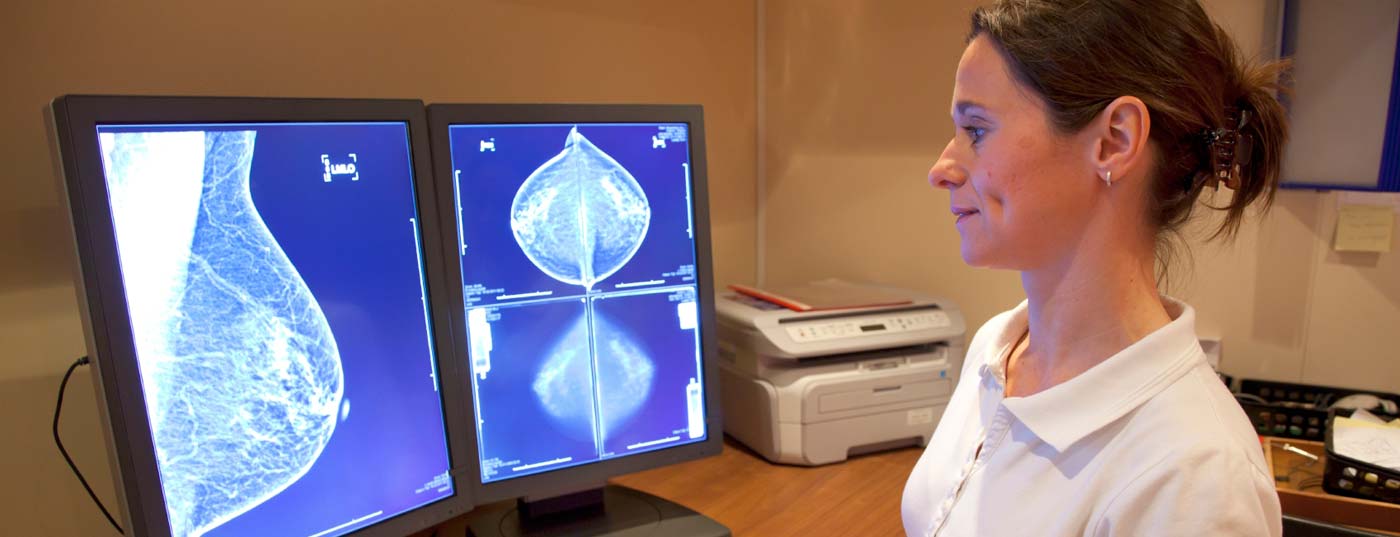In breast cancer patients with involvement of only a few lymph nodes, post-mastectomy radiation should not be omitted. A large meta-analysis of a total of 22 randomized trials makes clear that radiotherapy significantly reduces the risk of recurrence and breast cancer-related mortality in the long term.
In women with early breast carcinoma, radiotherapy after mastectomy has already been shown to be useful in meta-analyses [1]. Guidelines such as the St. Gallen Consensus Recommendations therefore advocate post-irradiation in patients with at least four affected lymph nodes [2]. In contrast, for nodal-negative patients and for those with a maximum of three affected lymph nodes, the evidence for radiotherapy has been insufficient.
Paul McGale, MD, a statistician with the prestigious Early Breast Cancer Cooperative Trialists’s Group (EBCTCG), Oxford, presented at EBCC 9 a meta-analysis – published simultaneously in the Lancet – of 8135 patients from 22 trials conducted between 1964 and 1982. In this, irradiation of thoracic wall and regional lymph nodes after mastectomy and axillary excision had been tested in a randomized design [3]. Nodal status was known from 3831 patients: 700 women were nodal negative, 1314 had a maximum of three lymph nodes affected, and the remainder had four or more. All patients were followed up for an average of just over seven years; data on recurrences and breast cancer deaths are available up to 2009.
Risk of relapse reduced by approx. one third
With negative nodal status, postradiation had no additional effect and did not reduce recurrence or mortality risk, Dr. McGale reported. The situation was different in women with one to three affected lymph nodes: In this group, the risk of recurrence was reduced by almost one-third (RR 0.68; 2p=0.00006), and the breast cancer-specific mortality risk was reduced by one-fifth (RR 0.80; 2p=0.01), compared with non-irradiated patients. Post-irradiation also proved useful in patients receiving adjuvant systemic therapy with the CMF regimen or tamoxifen because of the prevention of recurrence and death from breast cancer. Patients with only one affected lymph node benefited from postradiation to a similar extent as women with two to three affected lymph nodes.
As expected, radiotherapy reduced recurrence rate and mortality even in patients with more than four positive lymph nodes. The former decreased by a relative 21 (RR 0.79; 2p=0.0003), while breast cancer-specific mortality decreased by 13% (RR 0.87; 2p= 0.04).
Today’s situation different?
Dr. McGale pointed out that since the studies analyzed were conducted, advances have been made in radiotherapy as well as breast cancer screening, surgical techniques, lymph node staging, and systemic therapy. Therefore, the absolute benefit of post-mastectomy irradiation may be smaller today than in the earlier studies. The proportional benefit of radiation, however, is likely to remain as great, he said.
Source: European Breast Cancer Conference (EBCC), March 19-21, 2014, Glasgow.
Literature:
1st Early Breast Cancer Trialists’ Cooperative Group; Lancet 2005; 366: 2087-2106.
2 Goldhirsch A, et al: Ann Oncol 2013; 24: 2206-2223.
3. McGale P, et al: Lancet 2014; doi.org/10.1016/S0140-6732(14)60488-8.
InFo ONCOLOGY & HEMATOLOGY 2014; 2(4): 22-24.











